IVF in Iran is the most effective form of assisted reproductive technology to help people have a baby. In Vitro Fertilization or IVF is a common treatment for infertility that has been practiced in Iran since 1990 and helped many infertile couples have a biological child. Many couples from all over the world decide to travel to Iran and undergo the IVF process in this country due to many reasons.
The process will be done using your own eggs and your husband’s sperm. In the IVF cycle, you can use donor eggs, sperm, or embryos from a known or unknown donor. In some cases, a surrogate, who is a woman with an embryo implanted in her uterus, can be used. The chance of having a good pregnancy through IVF depends on many factors, such as your age and the reason for infertility. To know more about IVF treatment in Iran and IVF process in general, read this article.
What is IVF or in Vitro Fertilization?
In vitro fertilization or IVF is a type of assisted reproductive technology (ART) that involves several steps and can be a suitable option for individuals or couples facing various reproductive challenges. The term “in vitro” is derived from Latin and means “in glass,” as the process occurs outside the body, typically in a laboratory setting. IVF process in simple sentences means inseminating an egg with sperm outside the body in a laboratory dish. The embryo is then transferred to the uterus for implantation and development.
IVF may be used to treat infertility due to a variety of factors, such as blocked fallopian tubes, endometriosis, or low sperm count. This treatment may also be used in cases where other fertility attempts have been unsuccessful and have not reached to a healthy pregnancy or vital birth. IVF success rates vary depending on a number of factors, including age, fertility diagnosis, and the number of embryos transferred.
It should be mentioned that IVF is often not the first step in treating fertility problems. Actually, it is only used when previous methods including fertility drugs, surgery, and artificial insemination have been unsuccessful in achieving pregnancy. IVF may be an option if one or both of the partners has been diagnosed with problems like endometriosis, low sperm count, problems with ovulation, antibody problems that harm sperm or eggs, and unexplained fertility problems that eventually led to infertility.
History of IVF in Iran
The development of IVF treatment in Iran has been influenced by the collaboration between IVF pioneers and a team of interdisciplinary experts, as well as the endorsement and enthusiastic support of Shia jurists. Notably, significant achievements have been made in the field of assisted reproductive technologies, including the first baby born through retrograde ejaculation using intrauterine insemination in 1992, the first baby resulting from intracytoplasmic sperm injection and egg donation in 1994, and the first baby born using ICSI and percutaneous epididymal sperm aspiration in 1996/97. In 1998, the first embryo produced from testicular spermatozoon by microinjection was transferred, and in 2004, the first baby was born following pre-implantation genetic diagnosis (PGD) at the Royan Institute in Tehran.
The use of IVF has become commonplace in Iran for a variety of purposes, including PGS for genetic disease prevention or PGD for sex selection, as well as sperm, egg, and embryo donation, surrogacy, fertility preservation, and fertility conservation (such as freezing of eggs, sperm, and embryos).
Is IVF Allowed in Iran?
Iran has many centers active in the field of fertility treatment where all the infertility treatment methods such as IVF, IUI, ICSI, egg donation, sperm donation, surrogacy, PGS (genetic screening), and PGD (sex selection) are legally practiced according to the regulated law of Iran. IVF is legal in Iran because it is a necessary procedure for carrying out other treatments. Legalizing the use of ART has helped Iran to advance in the field of infertility treatment, along with other countries in Europe and America, and to become the first country in the region in terms of infertility treatment, especially among Muslim patients.
Iran is a Muslim country where the majority of residents are Shia followers. In Iran, making decisions about the legitimacy of biotechnology, including ART, is the responsibility of Islamic jurists or “Foghaha” with the help of medical professionals in order to better understand the ethical principles of their use. This is different from many international countries, where decisions about biotechnology are the work of parliaments and expert committees.
In Islam, there are different attitudes towards the use of assisted reproductive technologies. The Sunni branch of Islam puts more restrictions on receiving help from ART and compares others to Shia schools. However, the use of in vitro fertilization for couples who use their own gametes for insemination is allowed in both main branches of Islam. In 1999, Ayatollah Khamenei, the Supreme Leader of Iran, approved the use of donor eggs, sperm, and embryos under certain conditions.

The Advantage of IVF in Iran
As an increasing number of couples are deciding to go abroad for IVF, why they should pick IVF treatment in Iran?
There are several advantages of IVF in Iran, which have made it a popular destination for medical tourism in this field. Some of these advantages include:
- Affordability: IVF treatment in Iran is generally much more affordable than in many other countries, such as the United States or Europe.
- High success rates: Iran has some of the highest success rates for IVF in the world, with some clinics reporting success rates of up to 70%.
- Advanced technology: Iran has a well-developed infrastructure for IVF treatment, with many clinics equipped with the latest technology and facilities.
- Experienced doctors: Many IVF doctors in Iran have extensive experience and training in the field, and are highly skilled in performing IVF procedures.
- Availability of donor eggs and sperm: In Iran, it is legal to use donor eggs and sperm for IVF, which can increase the chances of success for couples with fertility issues.
- Availability of Surrogate mothers: In Iran, after doing an IVF treatment, there are surrogate mothers available to legally carry and deliver the baby in case of need. Therefore, it will increase the chances of success for couples who need another woman to carry their embryos.
- Cultural sensitivity: Iran has strict laws and regulations regarding the ethical and cultural aspects of IVF treatment, which can provide reassurance to patients who may have concerns about these issues.
In addition to the medical reasons, we should not overlook one of the most alluring purposes of picking Iran as the medical destination; the chance to enjoy meeting one of the most charming nations on the earth. Most explorers leave Iran amazed that it is such a tranquil, protected, and various nations. From lavish woods to deserts, old remnants to stylish bistros, clamoring urban communities to beautiful clans; Iran is genuinely one of the world’s attractions for all tourists.
Who is a Good Candidate for IVF?
IVF may be recommended for couples or individuals who are experiencing infertility or have certain medical conditions that make it difficult to conceive naturally. However, not everyone is a good candidate for IVF, and the decision to pursue this treatment should be made in consultation with a qualified doctor.
Here are some factors that may make someone a good candidate for IVF in Iran:
1. Blocked or damaged fallopian tubes: Women with blocked or damaged fallopian tubes may be good candidates for IVF because the procedure bypasses the need for the tubes to be functional.
2. Male infertility: Men with low sperm count or other issues that affect sperm quality or motility may benefit from IVF, especially when combined with intracytoplasmic sperm injection (ICSI), which this procedure entails the direct injection of a single sperm into an egg.
3. Unexplained infertility: Couples who have been trying to conceive for a year or more without success and have no identifiable cause of infertility may be good candidates for IVF.
4. Ovulation disorders: Women with ovulation disorders, such as polycystic ovary syndrome (PCOS), may benefit from IVF.
5. Age-related infertility: Women over the age of 35 may have a decreased ovarian reserve, making it more difficult to conceive naturally. IVF may be a good option for these women.
6. Genetic disorders: Couples who carry genetic disorders that may be passed on to their offspring may opt for IVF with preimplantation genetic testing (PGT) to screen embryos for genetic abnormalities before transfer.
It is important to note that IVF may not be suitable for everyone, and the decision to pursue this treatment should be made in consultation with a qualified healthcare provider who can assess individual circumstances and recommend the best course of action.
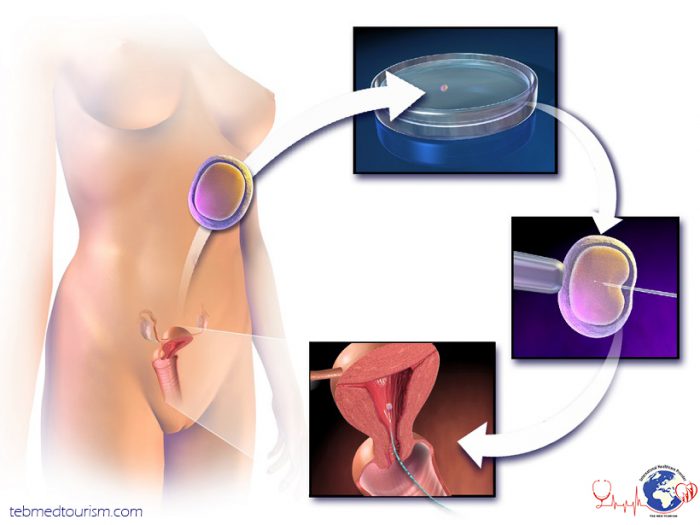
Process of IVF in Iran; Step by Step
- Preliminary Sonography or Ultrasound Radiologic Evaluation
- Secondary Sonography
- IVF Procedure Preparation
- Proceeding with IVF
- Testing and Stimulating the Ovaries
- Oocyte Maturation
- Egg Retrieval
- Sperm Collection
- Fertilization
- Embryo Transfer
How Long Does the IVF Process Take in Iran?
A complete cycle of IVF treatment in Iran takes less than one month. This process starts with some pre-operative procedures like general and hormonal tests, uterine and ovaries ultrasounds, viral lab tests, and sperm analysis. Then by the start of the woman’s menstruation cycle, the required medication will be prescribed and the dosage will be set according to different factors such as the patient’s age, weight, and height. After egg retrieval and sperm collection, the embryos will be made in a laboratory environment, and on day 17 or 18 of the cycle, the embryo(s) will be transferred to the uterus of the woman. Two weeks later, the woman should give a blood test to find out whether the pregnancy has successfully occurred.
IVF Success Rate in Iran
Before undergoing IVF treatment, it is important to consider the success rate of the procedure. IVF is a common infertility treatment for couples struggling to conceive, and Iran has established itself as a leader in IVF success rates compared to other countries.
Many patients travel to Iran each year to receive infertility treatment due to the country’s extensive experience and comprehensive services in the field. The success rate of IVF varies depending on several factors, such as the clinic or center where the procedure is performed. However, in Iran, the success rate is equal to or higher than global statistics.
To assess the success rate of IVF, patients are divided into two groups based on age: women under 35 years old and women over 35 years old. The success rate for the first group is around 40%, while the second group has a success rate of 15-20%. On average, the success rate of IVF in Iran for all ages is approximately 28%.
What Affects the IVF Success Rate in Iran?
IVF is a technique used to treat infertility by addressing issues such as low sperm count or motility, or insufficient egg production. The procedure is done in a highly controlled laboratory environment, and several factors can impact the success rate, as detailed below:
• Age: The most significant factor affecting IVF success rate is age. As you get older, the chances of successful IVF decrease, as the quality and quantity of eggs and sperm decline.
• Previous pregnancies: If you’ve had a successful pregnancy before, your chances of success with IVF are higher compared to those who have not.
• Cause of infertility: The underlying cause of infertility can also impact the IVF success rate, with some causes leading to lower success rates compared to others.
• Donated egg quality: In cases where a woman has ovulation problems, using donated eggs can be a solution. Fresh and young donated eggs tend to have a higher success rate.
• Lifestyle factors: Daily habits, such as smoking, obesity, and high-stress levels, can negatively affect the success rate of IVF.
• Quality of the infertility clinic: The experience of the fertility specialists and embryologists, as well as access to high-tech laboratory equipment, can significantly increase the success rate of IVF.
Iran is a great destination for IVF and infertility treatment, with many positive points that make it an attractive option. The high success rate of TebMedTourism IVF centers has made parenthood come into reality for many couples. If you’re interested in learning more, don’t hesitate to contact us at tebmedtourism.com for additional information.
IVF Cost in Iran 2023
IVF is a medical treatment that can be performed in different parts of the world due to globalized medicine. However, many patients choose to receive IVF treatment in Iran every year due to the high quality of therapy and significantly lower costs compared to other countries.
The cost of IVF in Iran is generally one-fourth of the cost of IVF treatment in other countries, while the quality of care is comparable to that of countries like the USA and Germany. The average cost of IVF in Iran is around $3,000 per total IVF cycle, including doctor’s visits, the IVF cycle, embryo transfer, drugs, ultrasounds, and tests.
Which Factors Affect IVF Cost in Iran?
The cost of IVF, as well as the quality of medical care, are important considerations for couples seeking infertility treatment abroad. Unfortunately, many couples may not be able to afford the high costs associated with infertility treatment. Therefore, finding a high-quality fertility center with affordable costs has great importance. In this part, we will discuss the factors that affect the cost of IVF and compare the cost of IVF in Iran to other countries.
IVF involves laboratory fertilization and embryo transfer to the uterus. The treatment plan is based on the underlying cause of infertility, which may include egg or sperm donation, surrogacy, and other options. The cost of IVF is influenced by several factors, including:
- the quality of the fertility clinic
- the cost of pre-IVF prescribed drugs according to patients’ needs
- the experience of the fertility specialist
- the price of donated eggs or sperm
- embryo transfer costs
- and other expenses
TebMedTourism has a transparent pricing policy to ensure that patients are fully informed about the costs involved in their treatment. The current IVF cost in TebMedTourism is $3000 which made this treatment affordable for almost all couples in need of this treatment. We are committed to providing high-quality medical care at reasonable prices, making it an excellent option for couples seeking infertility treatment abroad.
Quick Information |
|
|---|---|
Cost | 3000$ |
Anesthesia | General or local |
Duration of procedure | 3-4 weeks |
Hospital Stay | Zero day |
Minimum Stay in Iran | 3-4 weeks |
IVF + Embryo Transfer
- Treatment
- Medical consultation
- Post Treatment follow-up
- Airport Pick up/Drop off
IVF + PGD (Sex Selection)
- Treatment
- Medical consultation
- Post Treatment follow-up
- Airport Pick up/Drop off
IVF + Egg donation
- Treatment
- Medical consultation
- Post Treatment follow-up
- Airport Pick up/Drop off
IVF + Egg Donation + PGD
- Treatment
- Medical consultation
- Post Treatment follow-up
- Airport Pick up/Drop off
The Comparison of IVF Cost in Iran and Other Countries
To illustrate the cost difference, we have compiled a table showing the average cost of IVF in various countries compared to the cost of IVF treatment in Iran:
| Country | Average Cost of IVF | Cost Difference Compared to Iran |
| Poland | $6,332 | +135% |
| Turkey | $5,880 | +110% |
| Czech | $6,900 | +145% |
| India | $6,160 | +120% |
| Russia | $7,380 | +165% |
| Ukraine | $7,380 | +165% |
| Cyprus | $7,380 | +165% |
| Greece | $8,000 | +185% |
| Latvia | $8,540 | +210% |
| Spain | $9,380 | +235% |
| Malaysia | $12,800 | +355% |
| UK | $11,900 | +325% |
| Italy | $11,800 | +335% |
| UAE | $8,600 | +210% |
| Singapore | $8,900 | +215% |
| Australia | $14,000 | +560% |
| USA | $25,500 | +810% |
As shown in the table, the average cost of IVF in many other countries is much higher compared to the cost of IVF in Iran. As a result of the recent devaluation of Iran’s currency, high-quality medical services are now more affordable. Iran’s medical science has a strong global ranking, particularly in the field of infertility treatments. The cost of an entire IVF cycle in Iran is very reasonable, with an average cost of $3500. This price covers a range of services including doctor consultations, the IVF cycle itself, embryo transfer, necessary medications, ultrasounds, and required tests.
The Best IVF Clinic in Iran2023
Iran has many well-equipped IVF centers and the best IVF treatment surgeons, providing infertility services to all the local residents and international patients.
In the field of assisted reproductive technology, Iran’s leading fertility centers stand out as the top centers regarding equipment and experts. Iran’s IVF clinics, renowned for their proficiency and exceptional success rates, serve as a beacon of hope for couples struggling to conceive.
The clinics’ commitment to employing the day’s methodologies and advanced technology is a testament to its dedication to patient success. By offering an extensive range of services from IVF, ICSI, and gamete donation to surrogacy, the clinic has been the cause of transforming countless dreams into reality.
The team of experts provides compassionate and diligent care to guide patients through the journey to parenthood. Patients can expect a private and comfortable environment that supports both their physical and emotional well-being. The sophisticated diagnostic tools and individualized treatment plans ensure the best pregnancy outcomes. Overall, if you’re looking for an IVF clinic that combines expertise, innovation, and compassionate care, IVF clinics in Iran are the best choice.
Where is The Best IVF Center in Iran?
The best IVF center should prioritize the needs and well-being of its patients and provide high-quality treatment throughout the IVF process. A top IVF center should have several key features that ensure patients receive the most possible care. Some of these features include:
- Experienced and Qualified Medical Staff
- Comprehensive ART Facilities and Equipment
- High Success Rates
- Personalized Treatment Plans
- Supportive Care
- Transparent Policy
TebMedTourism collaborates with the best clinics and IVF centers in Iran such as Royan, Taban, Amin, Madaran, Payambaran, etc. Although all these clinics are approved and qualified, TebMedTourism refers each patient to the best possible center according to the needs of the clients, and their arrival time.
For achieving more information click here…
Why Iran is a Good Destination for IVF for International Medical Travelers?
Some of the advantages of IVF in Iran through TebMedTourism are the affordable cost of treatment, equipped fertility clinics and IVF centers, expert physicians, high success rate, and modern assisted reproductive technologies like egg donation, sperm donation, embryo donation, surrogacy, PGS (genetic screening), PGD (sex selection), etc. in case of need. These features have turned Iran into a leader in the field of fertility treatment all over the world and especially among Muslim countries.
Our physicians are specialized skilled fertility doctors, who are dedicated to increasing your chances of bearing a child. We work to make your dreams come to reality.
We are confident that our extensive experience and knowledge will provide you with the resources necessary to start your own family. TebMedTourism company values your trust and confidence in our services. You can read our clients’ experiences to know our family better. For a personal consultation with a doctor, feel free to contact us on WhatsApp free of charge.
Frequently Asked Questions About IVF In Iran
Why IVF is Cheaper in Iran?
There is a misconception that expensive IVF centers lead to better results, but the reality is that there is no significant correlation between the cost of IVF and its success rate. Due to the devaluation of Iran’s currency compared to currencies like Dollar and Euro, medical and non-medical services in Iran are now affordable for international patients. Despite the lower costs, the quality of the services provided in Iran can compete with those in Western countries. Fertility centers in Iran offer the expertise of experienced physicians, top-notch equipment, and affordable treatment options, making Iran a great choice for IVF.
If you’ve decided to pursue IVF treatment for infertility, you may have questions such as:
- What is the cost of IVF?
- Where is the most affordable place to undergo IVF?
- Is Iran a good option for IVF?
- What are the advantages and disadvantages of getting IVF treatment in Iran?
- What are the costs of accommodation and travel in Iran?
- Ultimately, you need to weigh the costs and benefits to determine if IVF in Iran is cost-effective for you.
What is the Success Rate of IVF in Iran?
The success rate of IVF in Iran varies depending on the specific clinic and individual patient factors. However, the success rates for IVF in Iran are high, with some clinics reporting success rates of up to 50% per cycle. Other factors that may affect the success rate of IVF treatment in Iran include the age and health of the woman, the quality of the sperm and eggs used, and the number of embryos transferred. It is important for patients to consult with a reputable healthcare facilitator like TebMedTourism that is experienced in IVF treatment and collaborates with the fertility centers that own the highest success rates.
What Happens After IVF in Iran?
After an IVF cycle, there are a few possible outcomes. The first outcome is that the cycle results in a successful pregnancy. This means that one or more embryos are implanted in the uterus and developed into a healthy pregnancy, leading to the birth of a baby. However, not all IVF cycles result in a pregnancy.
Another possible outcome is that the IVF cycle is unsuccessful, meaning that the woman does not become pregnant. This can be due to a variety of factors, such as poor egg quality, sperm quality, embryo development, or issues with the uterus or fallopian tubes.
When the IVF cycle is unsuccessful, couples may choose to try again with another embryo transfer in case they have other frozen embryos left. If the couple do not have other embryos, another IVF cycle should be started. Depending on the reasons for the initial failure, the couple may choose to adjust the medications or dosages used during the cycle, try a different type of assisted reproductive technology, or address any underlying medical issues that may have contributed to the unsuccessful cycle.
In some cases, couples may choose to explore other options for building their family, such as donor eggs, donor embryos, surrogacy, or adoption.
How Many IVF Clinics are there in Iran?
Iran has numerus IVF clinics that provide a wide range of reproductive healthcare services to local and international patients around the world. The exact number of IVF clinics in Iran is difficult to determine, but it is estimated that there are more than 100 IVF clinics throughout the country, with many located in major cities such as Tehran, Mashhad, Yazd, and Shiraz. These clinics vary in terms of their size, facilities, and expertise, and it is important for patients to consult with a reputable healthcare facilitator to find the best IVF clinic for their specific needs and circumstances.
How to Find the Best IVF Doctors in Iran?
When searching for the best IVF surgeons in Iran, there are several factors to consider. The first step is to research the qualifications and experience of potential surgeons, including their education, training, and board certification. It’s also important to consider the success rates of the clinics where they practice, as well as their patient reviews and testimonials.
One of the best ways to find the best IVF doctors in Iran is by working with a reputable healthcare facilitator such as TebMedTourism. These facilitators have a network of trusted healthcare providers, including IVF specialists, and can help you find the right doctor based on your specific needs and preferences.
TebMedTourism healthcare facilitator can help you navigate the complex process of seeking treatment abroad, including arranging appointments and consultations with IVF doctors, coordinating travel and accommodation, and providing other logistical support. By working with a healthcare facilitator, you can ensure that you receive the highest quality care from the top IVF experts in Iran, while also minimizing the stress and uncertainty of seeking treatment in a foreign country.
Where is The Best IVF Center in Iran?
The best IVF center should prioritize the needs and well-being of its patients and provide high-quality treatment throughout the IVF process. A top IVF center should have several key features that ensure patients receive the most possible care. Some of these features include:
- Experienced and Qualified Medical Staff
- Comprehensive ART Facilities and Equipment
- High Success Rates
- Personalized Treatment Plans
- Supportive Care
- Transparent Policy
TebMedTourism collaborates with the best clinics and IVF centers in Iran such as Royan, Taban, Amin, Madaran, Payambaran, etc. Although all these clinics are approved and qualified, TebMedTourism refers each patient to the best possible center according to the needs of the clients, and their arrival time.

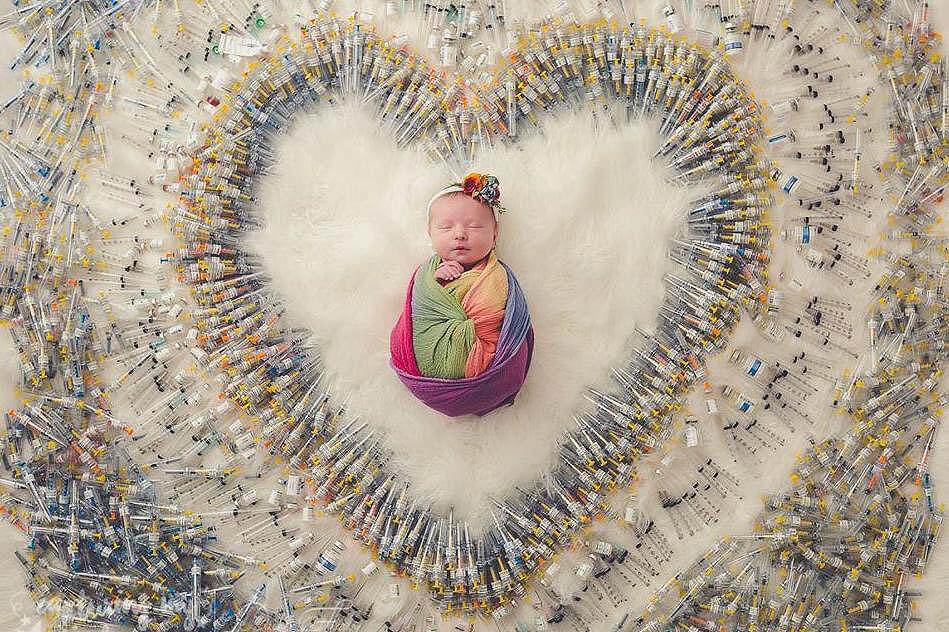
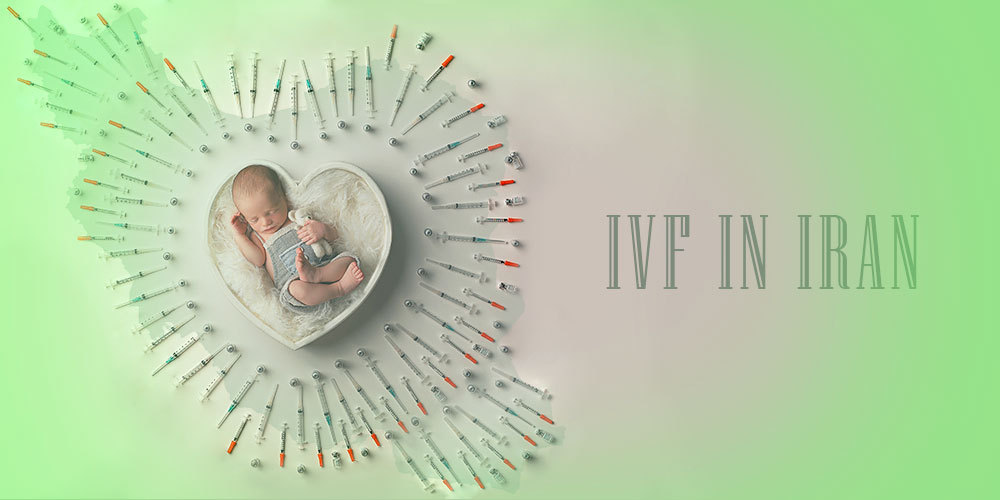
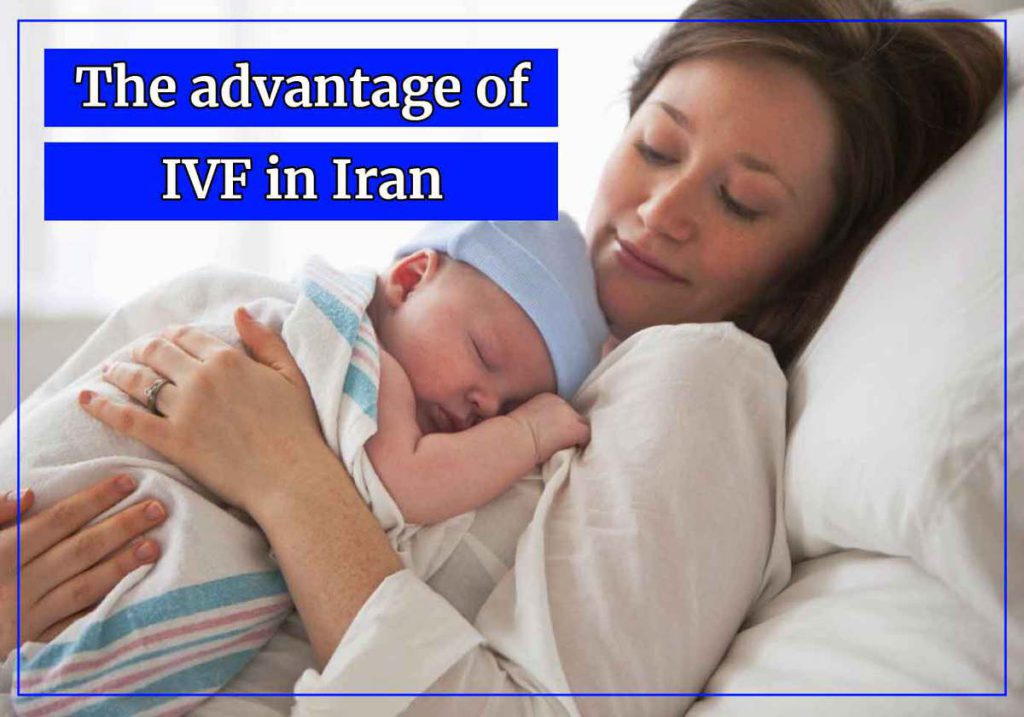
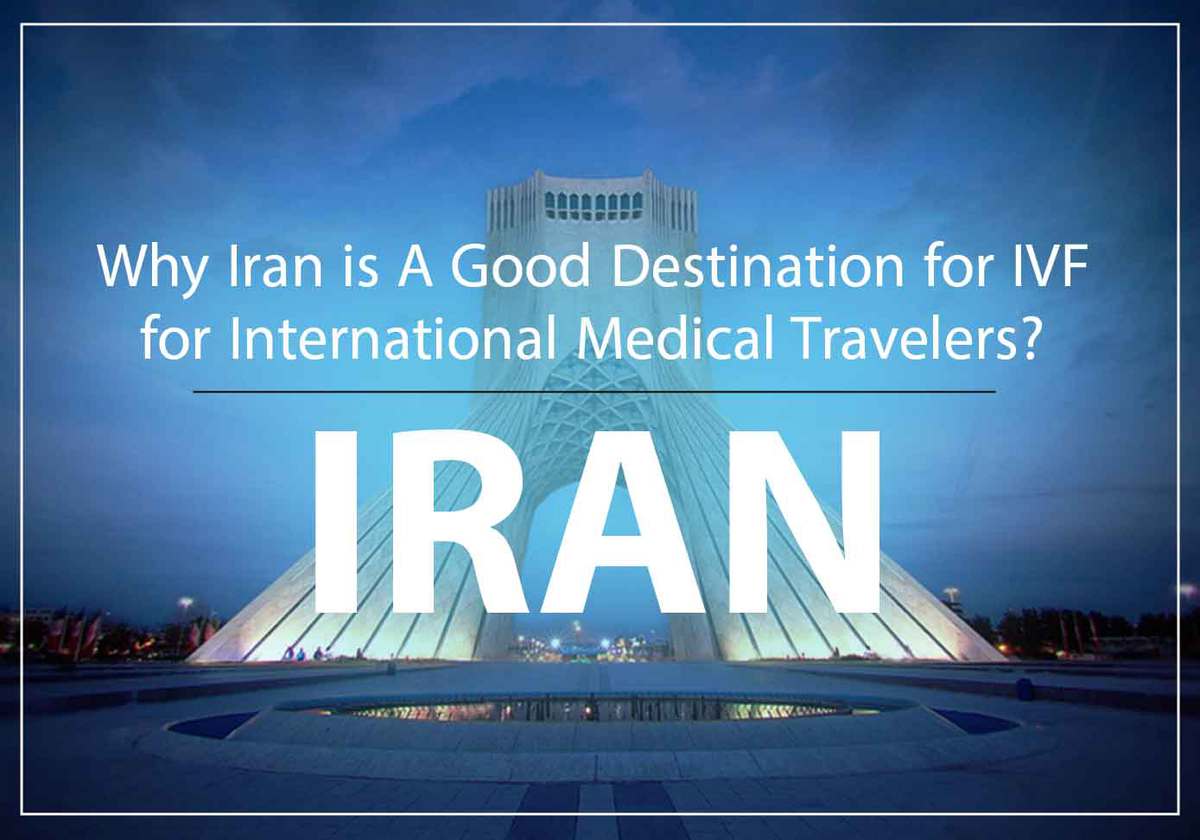

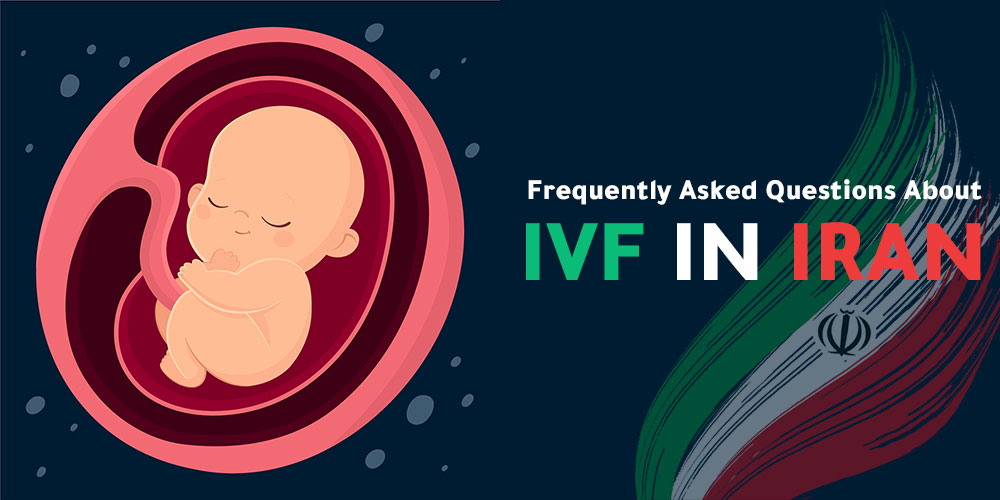


Hello,
I am an OBGYN specialist.
I would like to know , if you do a training in IVF in your center for doctors.
Thanks alot
Pingback: Blastocyst-ET cycle (complete cycle), IVF in Iran , IVF Cost ,Best IVF
Pingback: IVF-ET cycle (complete cycle), Best IVF Doctors In Iran ,IVF Clinics In Iran
Pingback: ICSI-ET cycle (complete cycle), IVF cost in Iran, Ivf in Iran
Pingback: Testicular Sperm Extraction | TESE in Iran | TESE cost in Iran
What are the chances of getting pregnant with IVF?
May i ask Can you choose gender with IVF?
In IVF cycle, you could not choose gender of your infant. For gender selection, you could choose IVF+PGD.
Hi, How much does one round of IVF cost?
IVF costs 1050$ and total IVF cycle costs 2200-2400
Hi,ihave a qusttion. how much does IVF+PGD cost?
IVF+PGD costs 3800- 4200 $
Hello, why does IVF fail the first time?
No its not a rule! If your female anatomical structure including uterus is normal, you may get pregnant
by IVF at the first time or in next trials.
I want to know, how do doctors collect sperm for IVF?
You may need few sperm count for IVF. Most important factor is motility of the collected sperms.
Hello, are IVF injections painful?
IVF is not a painful process. There is a sting sensation but that is not anything to be concern about.
Hello tebmedtourism, am I awake during egg retrieval?
YES! In egg retrieval, you do not need general anesthesia.
Hello, how many eggs do you need for IVF?
Depending on your age and response to egg production hormonal motivations, your doctor will retrieve 3-15 eggs
Hello, how long do I need to stay in Iran for IVF+ egg donation?
Your staying time for IVF+ egg donation or IVF+ PGD is approximately 25 to 30 days.
Hello, how long do IVF drugs stay in system?
IVF drugs prescribe for 8-10 days depending on the treatment protocol choose by your doctor.
Hi, does IVF make you tired?
Pingback: surrogacy |Surrogacy cost in Iran|Alternative infertility treatments|Surrogate